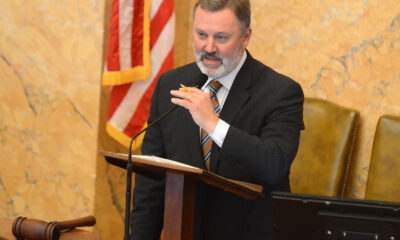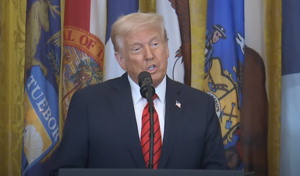(The Center Square) – A lawsuit is challenging a federal rule that three states and trade organizations say could hamper oil and gas exploration and production for small, independent operators on the outer continental shelf.
The rule could result in billions in compliance costs for the operators, according to the plaintiffs.
The lawsuit also says the rule will destroy 36,000 jobs, take away $10 billion in gross domestic product and cost the government more than $500 million in oil and gas royalties in 10 years. The complaint also says the Biden Administration’s agenda has been to “throttle the production (of oil and gas) on multiple fronts since day one.”
The Department of Interior, through the Bureau of Energy Management, issued a rule requires oil and gas companies without investment-grade credit rating operating on the outer continental shelf to acquire additional financing to cover potential decommissioning costs for old wells. The rule went into effect June 29.
The plaintiffs, which include the states of Texas, Louisiana and Mississippi along with several oil and gas trade associations, filed a lawsuit June 17 in the U.S. District Court for the Western District of Louisiana asking for a stay on the effectiveness of the rule or an injunction stopping its implementation.
The government says the rule is needed to prevent taxpayers from having to cover potential decommissioning costs for these operators.
In the complaint, the plaintiffs counter that in 75 years of offshore leasing, the government has assumed $58 million in decommissioning liabilities, less than 0.03% of the $208 billion in royalties and related revenue the government has received in the past 40 years.
The plaintiffs say in their complaint the rule would require $6.9 billion in additional financing for the smaller operators.
“But BOEM knows — or should know — that nobody will be able to provide those bonds, so the lessees will be unable to meet the Rule’s requirement,” the complaint says. “The upshot? Those small and mid-size lessees — which produce over a third of the oil and natural gas from the Outer Continental Shelf — will face potentially existential consequences.
“When they cannot meet the government’s demand for additional bonds, they can be subjected to civil penalties, forced to stop oil and gas production, and banned from operating in the Gulf.”
According to the complaint, surety bond companies told BOEM that they didn’t have the capacity to provide such bonds.
Mallory Wynne, a partner in Jones Walker’s Corporate Practice Group and a member of the commercial transactions team, told The Center Square that the oil and gas companies posting bonds to secure liabilities and the BOEM’s requirement for supplemental bonds is nothing new.
Wynne said the new rule may increase the cost doing business in the Gulf of Mexico for smaller lessees and operators.
Seth Levine is a partner in Jones Walker’s Corporate Practice Group and co-chair of the Industrial, Petrochemical and Advanced Manufacturing Industry Team.
“The rule may result in increased costs of compliance for many lessees,” Levine told the Center Square. “The rule might cause oil and gas companies to reassess and restructure the allocation of risk in transactions involving acquisitions and divestitures of lease interests.”
The American Petroleum Institute has requested to join the lawsuit, along with the Center for Biological Diversity, Healthy Gulf, the Ocean Conservancy and Louisiana Mid-Continent Oil and Gas Association, which have all filed amicus briefs. Wynne said additional intervenors are possible.











































